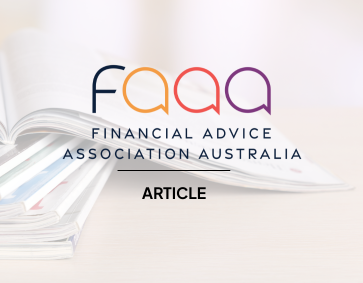In the Financial Advice Association of Australia (FAAA’s) response to the government’s first batch of Quality of Advice Review (QAR) reforms, chief executive Sarah Abood says the FAAA’s key concern is the government’s decision to not mandate a standardised fee consent form.
“The removal of the requirement to produce a Fee Disclosure Statement (FDS) is welcome, although advisers with clients on annual agreements are already not needing to produce them. As a result, fee consent standardisation is the key reform in this first batch of “Stream 1” draft legislation with the potential to achieve meaningful productivity gains. This is a critical step in reducing the cost to provide advice to Australian consumers."
"However, this draft legislation would not make it mandatory for product issuers to accept the standard form. And it is unlikely that product issuers will choose to make the expensive changes to their systems and processes that would be required to standardise fee consent, unless they are required to do so by law,” says Ms Abood.
“Unless the draft legislation is changed, advisers will be left in the current untenable position of needing to annually deliver many hundreds of different forms, in different ways, to every individual product provider they deal with. Clients will remain snowed under with unnecessary paperwork and the cost of advice will not move at all."
”In our submission, we have suggested two options for change to the draft legislation, that could achieve the goals of the Stream 1 reforms."
“Option 1 is to remove the requirement for product issuers to verify each individual client consent. This is the simplest approach, and our preferred option."
“It is based on an acknowledgement that since the Hayne Royal Commission, financial advice has become a profession, and advisers and their licensees have the positive obligation to obtain clients’ free, prior and informed consent to any benefits received, including fees."
“It is unnecessary as well as hugely costly for product issuers to be required to verify every individual consent form. It is already against the law for such fees to be charged without client consent. If it were found that such fees had been charged without consent, then the adviser and their licensee would be obliged to refund them as well as being subject to a range of penalties."
“In this option, a standard form would still be developed for financial advisers’ use, that they would be entitled to rely upon as evidence of consent. Developing this form would be a relatively straightforward process, as no account would need to be taken of multiple different product systems and processes."
“Option 2 would be to proceed with the current approach of advisers providing fee consent forms to product issuers, however amend the primary legislation to include a mandate that all product providers must accept a rationalised standard form for the deduction of personal advice fees, as evidence of client consent."
“This would be more complex, as the standard form would need to take account of client units (husband, wife, trust, company etc) and multiple product holdings. However, we would still realise some efficiencies by removing a substantial level of variability for advisers and their clients."
“Regardless of which of these options is followed, another issue which must be addressed is the approach to the anniversary date for fee consent. The inability to change the anniversary date and thus move the date of annual reviews is a huge issue, impacting advice practice efficiency and the ability to be fully client centric."
“To realise efficiencies in this process, it is critically important that advisers have the ability to bring forward renewal dates to harmonise reviews for different entities and clients in the one group and to align with the preferred timing for clients."
“The FAAA’s recommended changes would deliver significant improvements for consumers and their advisers, and are in line with the government’s acknowledgement of the professionalisation of financial advice,” Ms Abood says.
“The FAAA would welcome the opportunity to work with Treasury to develop one standard form for client fee consent.”
To view the full FAAA submission to Treasury, click here.












